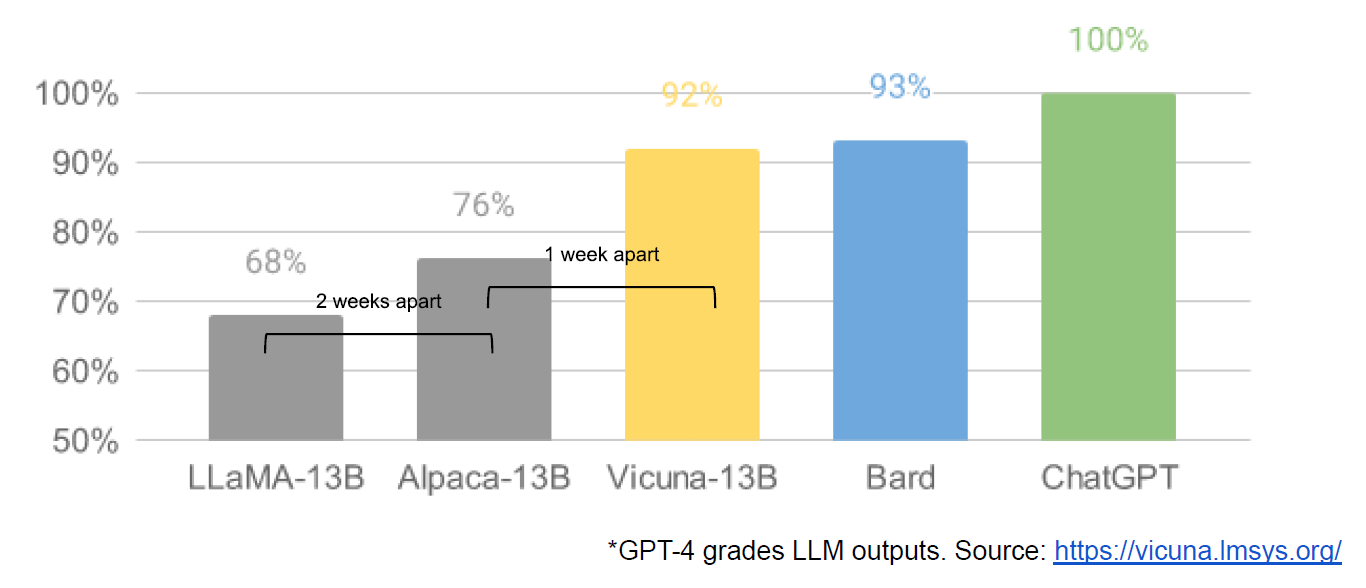**The text below is a very recent leaked document, which was shared by an anonymous individual on a public Discord server who has granted permission for its republication. It originates from a researcher within Google. We have verified its authenticity. The only modifications are formatting and removing links to internal web pages. The document is only the opinion of a Google employee, not the entire firm. We do not agree with what is written below, nor do other researchers we asked, but we will publish our opinions on this in a separate piece for subscribers. We simply are a vessel to share this document which raises some very interesting points.
By SemiAnalysis
We’ve done a lot of looking over our shoulders at OpenAI. Who will cross the next milestone? What will the next move be?
But the uncomfortable truth is, we aren’t positioned to win this arms race and neither is OpenAI. While we’ve been squabbling, a third faction has been quietly eating our lunch.
I’m talking, of course, about open source. Plainly put, they are lapping us. Things we consider “major open problems” are solved and in people’s hands today. Just to name a few:
- LLMs on a Phone: People are running foundation models on a Pixel 6 at 5 tokens / sec.
- Scalable Personal AI: You can finetune a personalized AI on your laptop in an evening.
- Responsible Release: This one isn’t “solved” so much as “obviated”. There are entire websites full of art models with no restrictions whatsoever, and text is not far behind.
- Multimodality: The current multimodal ScienceQA SOTA was trained in an hour.
While our models still hold a slight edge in terms of quality, the gap is closing astonishingly quickly. Open-source models are faster, more customizable, more private, and pound-for-pound more capable. They are doing things with $100 and 13B params that we struggle with at $10M and 540B. And they are doing so in weeks, not months. This has profound implications for us:
- We have no secret sauce. Our best hope is to learn from and collaborate with what others are doing outside Google. We should prioritize enabling 3P integrations.
- People will not pay for a restricted model when free, unrestricted alternatives are comparable in quality. We should consider where our value add really is.
- Giant models are slowing us down. In the long run, the best models are the oneswhich can be iterated upon quickly. We should make small variants more than an afterthought, now that we know what is possible in the <20B parameter regime.

“Meta’s open source AI really may eclipse the others in a short period of time, as there are so many users making it smarter right now.” -Rose Law Group Founder and President Jordan Rose








